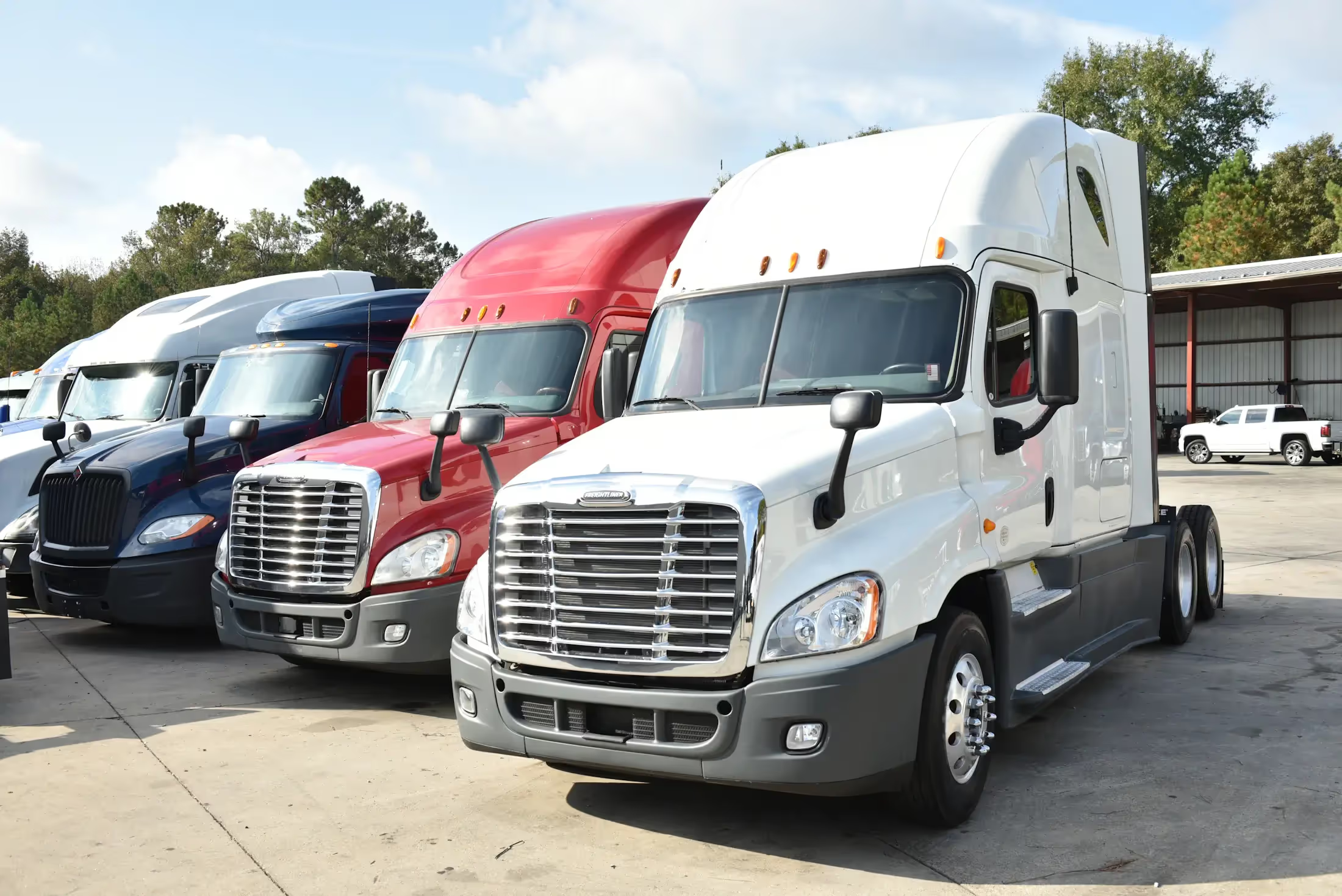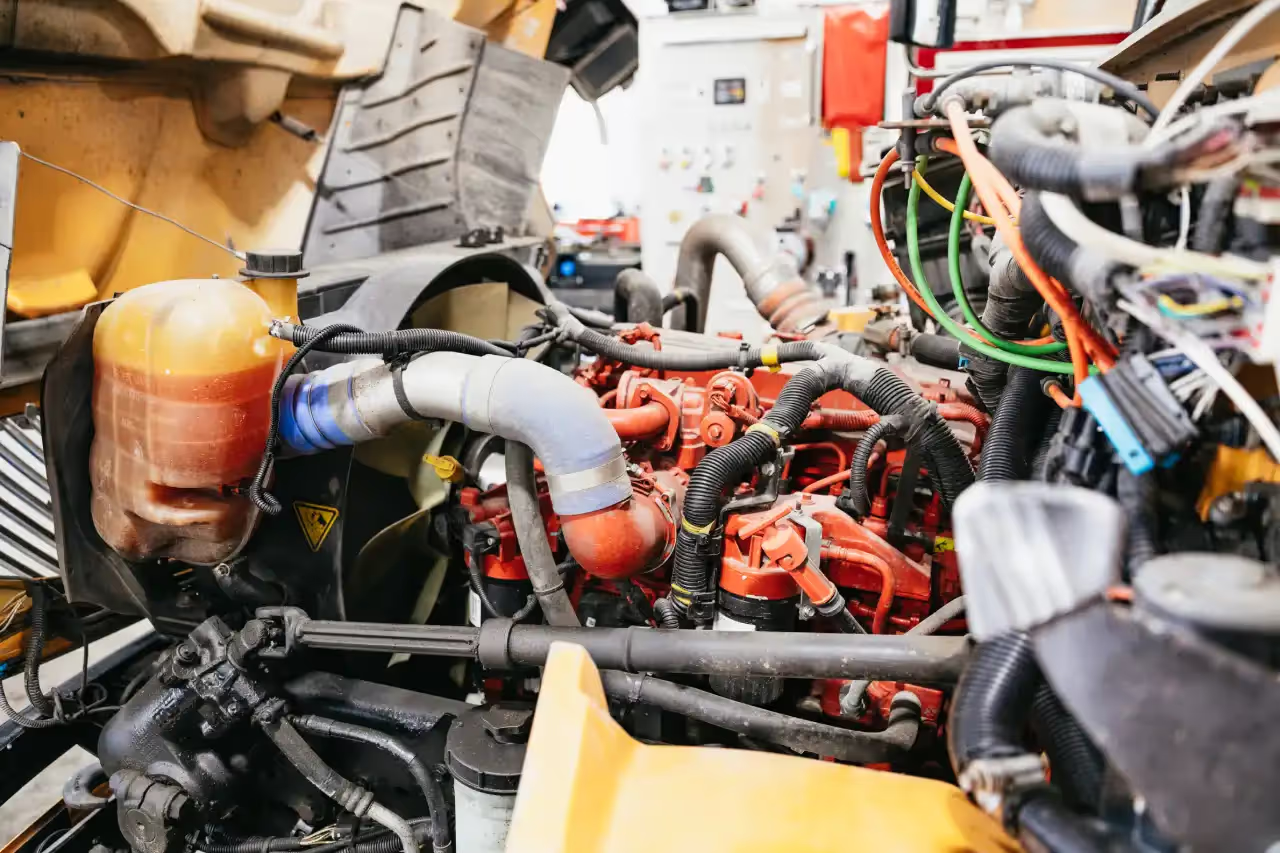Two main options usually come to mind in heavy-duty truck repair: mobile truck repair and traditional repair shops. Both have unique advantages and drawbacks, and understanding the difference can help fleet managers, owner-operators, and truck drivers make more informed decisions about maintaining and repairing their vehicles. Let’s break down the key differences and weigh up the pros and cons of each.
What is Mobile Truck Repair?
Mobile truck repair brings the garage to you. Think of it as roadside assistance on steroids—mechanics equipped with all the necessary tools and parts drive out to your location, whether that’s on the side of a highway or at a fleet yard. Services offered range from basic preventive maintenance and minor repairs to more significant on-site fixes.
What are Traditional Repair Shops?
Traditional repair shops are the classic go-to for truck repairs. These are brick-and-mortar facilities equipped with heavy machinery, like lifts and diagnostic equipment, specifically designed to handle major repairs and overhauls. They are the gold standard for accessing a broader range of services and doing the job in a controlled environment.
Key Differences Between Mobile Truck Repair and Traditional Shops
1. Convenience and Flexibility
- Mobile Truck Repair: One of the most significant advantages is its convenience. Mobile services save you from driving to the shop, which is especially beneficial if your truck is already experiencing issues. This service is designed to meet you where you are, reducing downtime significantly. Whether you’re on the road or stuck in a parking lot, mobile truck repair provides the flexibility of getting your truck back in action without the hassle of towing.
- Traditional Shops: While traditional shops may lack immediate on-site convenience, they offer the reliability of a well-established facility. Shops have designated hours and may require booking an appointment, which can be less flexible than mobile services. However, when a job is too big or requires equipment that simply can’t be transported, a traditional shop is the place to be.
2. Range of Services
- Mobile Truck Repair: Mobile units are great for quick fixes, such as tire changes, brake adjustments, battery replacements, and even diagnostic services. They are also ideal for preventive maintenance tasks, like oil changes and fluid checks. However, due to space and equipment limitations, mobile repair units often can't perform extensive repairs, such as engine overhauls, transmission replacements, or heavy-duty welding.
- Traditional Shops: Conversely, conventional repair shops are equipped to handle major repairs. They have lifts, specialized tools, and a controlled environment that is crucial for complex repairs. Jobs that require heavy-duty diagnostics, full system overhauls, or complex electrical work are best suited for these facilities. A traditional shop is typically the right choice if your truck needs a DOT inspection or serious repairs that can’t be done on the fly.
3. Cost Considerations
- Mobile Truck Repair: Mobile repairs often come with a premium for the convenience factor. You’re paying for the technician's travel time, which can add up if you’re in a remote location. However, the savings on towing fees and reduced downtime can often compensate for the additional costs. Plus, some mobile services offer fleet discounts, which can make them more competitive for businesses with multiple vehicles.
- Traditional Shops: Traditional shops may generally offer a lower hourly rate compared to mobile services. The catch is the potential extra costs associated with towing, lost time, and potential delays. Shops may also have the flexibility to offer package deals or bulk service discounts, making them more affordable for routine services.
4. Response Time and Availability
- Mobile Truck Repair: When time is of the essence, mobile repair units can often be a lifesaver. Some services offer 24/7 support, ensuring you can return to the road anytime. They are particularly useful for unexpected breakdowns where every minute counts, such as during long-haul deliveries or in busy urban settings like Fort Worth, TX.
- Traditional Shops: Shops typically operate during standard business hours and may not always be able to accommodate emergency repairs without an appointment. While some shops offer extended hours or weekend services, the response time may be slower than a mobile unit ready to deploy immediately.
5. Quality of Work and Warranty
- Mobile Truck Repair: Mobile technicians are skilled and usually well-versed in a wide range of on-the-spot repairs. However, due to their mobile nature, they might be limited in the tools and parts they have on hand, which can occasionally impact the quality of the fix. Some mobile services offer warranties, but they might be shorter or more limited than those traditional shops provide.
- Traditional Shops: With a fully stocked inventory of parts and advanced diagnostic tools, traditional shops often have the upper hand regarding the quality of work. They provide a controlled environment, which can be crucial for ensuring the longevity and reliability of repairs. Plus, many shops offer robust warranties on parts and labor, giving you peace of mind that the job will be done right the first time.
Pros and Cons Recap
Which Should You Choose?
Ultimately, the choice between mobile truck repair and traditional repair shops depends on the nature of the issue, your location, and your urgency. Mobile truck repair is an excellent option for minor issues, emergency breakdowns, or when you’re tight on time. On the other hand, traditional repair shops are your best bet for major repairs, preventive overhauls, or when you want the assurance of a full facility.
Conclusion
Both mobile truck repair and traditional repair shops have their distinct advantages. Mobile repairs offer unparalleled convenience and can minimize downtime, making them perfect for minor repairs and maintenance. Traditional shops provide comprehensive services and the security of a controlled environment, ideal for tackling more extensive, complex issues. By understanding your specific needs and weighing these factors, you can make the right choice to keep your truck running smoothly and efficiently.





.svg)

